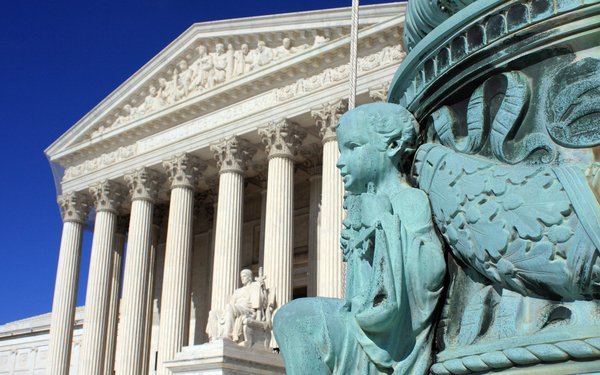Business Groups Ask Supreme Court To Intervene In Facebook Robo-Texting Battle
- by Wendy Davis @wendyndavis, November 21, 2019

A recent ruling in a lawsuit involving Facebook will worsen a “scourge” of “abusive litigation” over robotexts, business groups told the Supreme Court this week.
The ruling, issued earlier this year by the Ninth Circuit Court of Appeals, allows Montana resident Noah Duguid to proceed with claims that Facebook violated the Telephone Consumer Protection Act by allegedly sending him unwanted text messages. Duguid is among numerous people who have brought robotexting lawsuits against companies since 2009, when the Ninth Circuit Court of Appeals ruled that the Telephone Consumer Protection Act applies to robotexts as well as robocalls.
Now, both the country's largest business group, the U.S. Chamber of Commerce, and the Business Roundtable, which represents the biggest companies in America, are urging the Supreme Court to curb people's ability to sue over unwanted texts.
“Abusive litigation under the TCPA has long been a scourge, and the Ninth Circuit made it worse,” the groups write in a friend-of-the-court brief filed with the Supreme Court Wednesday.
The legal battle dates to 2014, when Duguid alleged in a class-action complaint that Facebook repeatedly notified him via text that his account had been accessed -- even though he never had an account with the service.
Duguid, whose carrier had apparently assigned him a recycled phone number, alleged that messages ran afoul of the federal robotexting law. That law prohibits companies from using “autodialers” to send texts to consumers without their consent, and provides for damages ranging from $500 to $1,500 per violation.
The measure defines an autodialer as equipment that's capable of storing and dialing numbers using a random or sequential generator. But that definition has been interpreted differently by judges throughout the country.
Facebook argued that its texting system wasn't an autodialer because it didn't generate the numbers randomly, but in response to information about a potential security breach.
The appellate judges in the Ninth Circuit disagreed, based on their interpretation of the word autodialer -- which they defined as equipment capable of storing numbers and automatically dialing them. The judges said in the ruling that Duguid's allegations, if true, were sufficient to establish that Facebook used an autodialer to send him texts.
Facebook recently asked the Supreme Court to review that ruling. Among other arguments, Facebook says the appellate court's definition of autodialer is too broad.
The Chamber of Commerce and Business Roundtable are backing Facebook's request. The groups say the Ninth Circuit's definition would transform every smartphone into an autodialer.
“If the Ninth Circuit is right, then nearly everyone has an [autodialer] in her pocket and faces $500 in damages anytime she calls or texts someone else’s smartphone without that person’s prior express consent,” the groups write. They add that this interpretation of the law would violate people's free speech rights.
Last year, the Ninth Circuit ruled in a similar matter that a former gym member at Crunch Fitness could proceed with a lawsuit alleging the company violated the robotexting law. Crunch unsuccessfully argued to the appellate court that its texting system shouldn't be considered an autodialer.
Crunch asked the Supreme Court to review the Ninth Circuit's decision, but settled the matter before the court announced whether it would take up the case.


